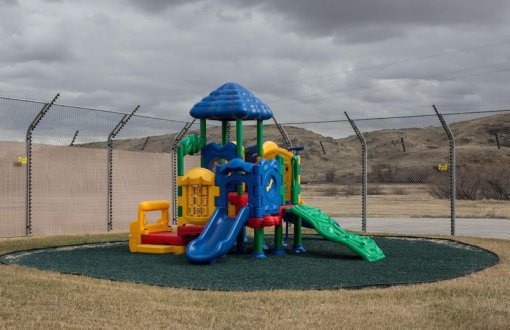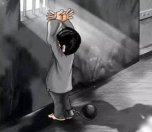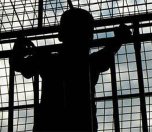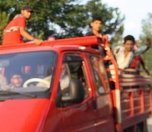Click to read the article in Turkish
In prisons across Turkey, there are more than 3 thousand child inmates and 743 children who have been staying in prison with their mothers.
But, what about the rights of education and health of the arrested and convicted children? Do they have an access to these rights?
And the children who are staying in prison together with their mothers... Can they play games? Are the equipments and instruments necessary for their development provided to them?
Today is November 20 Universal Children's Day.
Attorney Cansu Şekerci from the Civil Society in the Penal System (CİSST) Association has spoken to bianet about the rights violations that are encountered by the children living in prisons.
3,019 child inmates, 743 children in prison
Şekerci has indicated, "As of November 2018, there are 3 thousand and 19 children inmates between the ages of 12 and 18 in prisons of Turkey."
Last week, in response to the parliamentary inquiry of Republican People's Party (CHP) Mersin MP Alpay Antmen, Ministry of Justice stated that 743 children between the ages of 0 and 6 have been staying in prisons with their mothers. 37 of these children have not been six months old yet.
Cansu Şekerci has explained the situation of child inmates and the children staying in prisons across Turkey with their mothers as follows:
"They are away from nature, social life, games"
"It is forbidden to have toys in prison wards. Children are not only away from nature and social life, but they cannot play games as well.
"Children's rights to access education is an important right that needs to be protected. As per the related legislation, children and youth closed penal institutions are obliged to be based on education and training.
"As for the education and training houses, they are the institutions that take it as their aim to educate and train the child inmates and to help them reintegrate into the society. However, considering the conditions, it is not easy for children to access education.
"A considerable number of children that we have been communicating via letters state that they do not have a desire to continue with their education. On the other side, continuation of their education is equally important for the period after their release from prison.
"They are sometimes imprisoned with adults"
"Communication with outside world is another important point in prisons. Since several children are kept far away from their families, they do not have visitors, which makes prison conditions all the more difficult for them.
"There is no standard practice about the imprisonment conditions of inmate children. They are held in child prisons; but, it is also a frequently encountered practice to hold these children in the children's wards opened in adult prisons. They can also be imprisoned together with adults in prisons that are designated for adults."
Concluding her remarks, Şekerci has referred to the Article no. 40 of the UN Convention on the Rights of the Child, which stipulates,
"States Parties recognize the right of every child alleged as, accused of, or recognized as having infringed the penal law to be treated in a manner consistent with the promotion of child's sense of dignity and worth, reinforces child's respect for the human rights and fundamental freedoms of others and takes into account the child's age and desirability of promoting child's reintegration and child's assuming a constructive role in society." (AS/SD)














